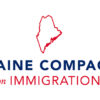U.S. Immigration Policies Force Romanian Entrepreneur to Start Tech Company in Canada
Date: April 28, 2015
Mircea Pasoi is one foreign entrepreneur who heard Canada’s call. After interning at Google and Microsoft and then landing a job offer from Facebook in the United States, the Romanian-born computer scientist decided he’d be happier starting his own technology venture. But he quickly realized that settling in Silicon Valley wasn’t an option for him. “It’s almost impossible to do a startup in America as a foreigner,” Pasoi explains, “If you want to work for your own company, there’s just no easy way of doing that with the current American visa system.” Even Pasoi’s track record of entrepreneurial success — having previously founded one of Romania’s top three job-search engines while still in college — didn’t help him.
So in 2010, Pasoi opted to settle in Vancouver, Canada instead, where he founded the firm Summify, an online service that lets consumers create a digest of the news stories shared by their friends on various social-media sites. Working with the incubator, Bootup Labs, Pasoi was able to transition from the tourist visa he used to enter Canada to a bona fide work permit. Although he says he’d always imagined Silicon Valley would be a “natural fit” for someone with his interests, he says he felt truly welcomed and supported in Vancouver. “It was a great place to start a business,” Pasoi says, “Our impression was it was much easier to get a visa in Canada than America, and that turned out to be correct.”
Pasoi thinks that his experience isn’t an uncommon one — especially as more foreign entrepreneurs become aware of the challenges of settling in the United States. “More and more people are realizing that Vancouver is a pretty good option,” he explains. He says he knows of at least one other Romanian startup team that decided to base their business in Canada for similar reasons last year. And if those businesses are anywhere near as successful as Summify, such decisions could cost the U.S. economy dearly. Twitter bought Summify in January of 2012. After this purchase, Pasoi was able to move to San Francisco to work at the Twitter headquarters via the L-1, an intra-company transfer visa. At Summify’s height before the merger, it boasted a staff of six and funding from the prominent venture capital firm Accel Partners. Pasoi was able to obtain an O-1 visa after his L-1 expired and after a lot of hard work, currently has a green card.
Canada, meanwhile, is working to become even more welcoming to immigrant entrepreneurs. In the spring of 2012, Canadian Citizenship and Immigration Minister Jason Kenney announced a new Startup Visa for Entrepreneurs. “We need to proactively target a new type of immigrant entrepreneur,” Kenney explained, “who has the potential to build innovative companies that can compete on a global scale and create jobs.” Even though Pasoi has a U.S. green card, he follows the Canadian system closely and says that this new visa is very attractive and useful for people like him.


